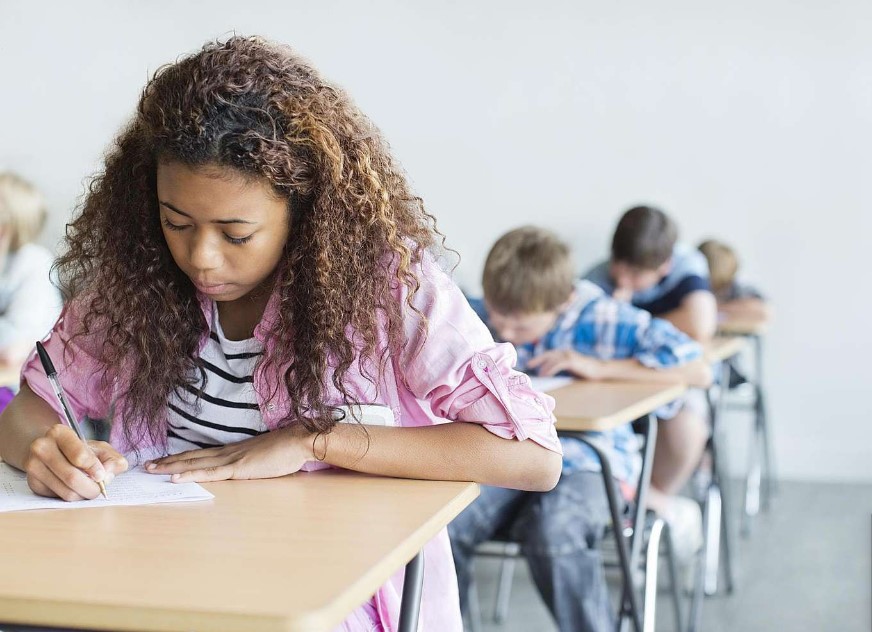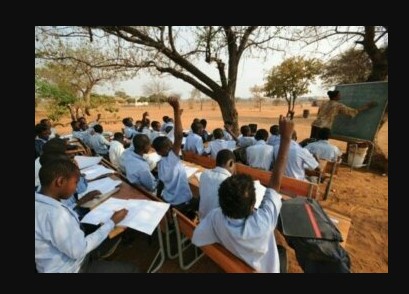Standardized testing has long been a cornerstone of education systems around the world. These tests, often administered at various levels of schooling, are designed to evaluate students’ knowledge, skills, and abilities in a standardized manner. While proponents argue that standardized testing provides valuable data for assessing student performance and guiding educational policy, critics raise concerns about its limitations and potential negative effects on students, teachers, and the education system as a whole.
Education
As we live in a time of digital connectivity, social media has an impact on almost every facet of modern life. Social media platforms are become an essential part of our everyday lives, impacting everything from social interactions to marketing tactics. Education has not been exempt from the effects of this digital revolution. Undoubtedly, social media has a significant and diverse influence on education, affecting not only students but also teachers and educational institutions.
In this article, we delve into the top five impacts of social media on education, exploring how these platforms have transformed traditional learning paradigms and revolutionized the educational landscape. From enhancing communication and collaboration to providing access to a wealth of educational resources, social media has emerged as a powerful catalyst for change in education. By examining these key impacts, we gain insight into the opportunities and challenges presented by the intersection of social media and education in the digital age. Let us embark on a journey to uncover the transformative potential of social media in shaping the future of learning and knowledge dissemination.
In the realm of education, School counselors play a vital role in supporting the academic, social, and emotional development of students, serving as advocates, mentors, and guides throughout their educational journey. In today’s increasingly complex and demanding educational landscape, the role of school counselors has evolved to encompass a diverse range of responsibilities aimed at promoting student success. From providing individualized counseling to facilitating college and career readiness programs, school counselors play a pivotal role in equipping students with the skills, resources, and support they need to thrive.
Best Strategies for Promoting Parent-Teacher Collaboration in Nigeria
In Nigeria, the partnership between parents and teachers plays a pivotal role in a child’s educational journey. However, fostering effective collaboration between these two essential stakeholders can be challenging due to various factors such as cultural differences, communication barriers, and differing expectations. Despite these challenges, creating a strong partnership between parents and teachers is crucial for the holistic development of students. Recognizing the significance of this collaboration, it becomes imperative to explore strategies that can bridge these gaps and facilitate meaningful engagement between parents and teachers.
In this article, we will explore some of the best strategies for promoting parent-teacher collaboration in Nigeria.
Effective classroom management is the cornerstone of successful learning experiences in the fast-paced world of education. It’s the skillful art of arranging a peaceful setting where both teachers and students can flourish. But managing the nuances of classroom dynamics can frequently like navigating a maze without a map. Fear not, for among the techniques and theories, three stand out as very effective approaches that can turn disorder into harmony and chaos into order. In this piece, we examine these three foundations of efficient classroom management and provide teachers with insightful analysis and useful advice on how to foster an atmosphere that supports mutual respect, learning, and growth.
In recent years, the landscape of education has undergone a significant transformation globally, and Nigeria is no exception. With advancements in technology and the widespread availability of the internet, online learning has emerged as a powerful tool to enhance education accessibility and quality. In Nigeria, where traditional education systems face numerous challenges, online learning offers a promising alternative.
In the rapidly evolving landscape of education, technology plays an increasingly pivotal role in shaping learning environments and enhancing educational outcomes. The integration of technology in modern education has transformed traditional teaching methods, offering innovative tools and platforms that cater to diverse learning styles. From elementary schools to universities, technology has become indispensable and also revolutionizing how students engage with learning and how teachers delivers instructions. In this article, we will explore five key roles that technology plays in modern education, highlighting its impact on teaching, learning, and the educational landscape as a whole.
6 Factors Responsible For Poor Health Habits Among Secondary School Students in Nigeria
In Nigeria, the health habits of secondary school students are a matter of concern, with various factors influencing their lifestyle choices. Poor health habits established during adolescence can have long-lasting implications on individuals’ well-being and future prospects. Understanding the underlying factors contributing to these habits is crucial for developing effective interventions to promote healthier lifestyles among Nigerian youth. This article explores six key factors responsible for poor health habits among secondary school students in Nigeria and discusses potential strategies for addressing them.
The Role of Women’s Education in Promoting a Healthy Society in Developing Nations
It is impossible to overestimate the contribution that women’s education makes to the development of successful communities in emerging nations. Health results, economic success, and social growth are just a few of the areas in society where education, especially for women, is a catalyst for positive change. Nations can tackle urgent health issues, advance gender parity, and establish the foundation for enduring growth by enabling women through education.
Drug Abuse and Its Health Implications Among Secondary Students in Nigeria
Drug abuse among secondary students in Nigeria is a pressing issue with significant health implications. The misuse of drugs among young people not only poses immediate health risks but also jeopardizes their long-term well-being and future prospects. Understanding the factors driving this problem and its consequences is crucial for effective intervention and prevention efforts.









